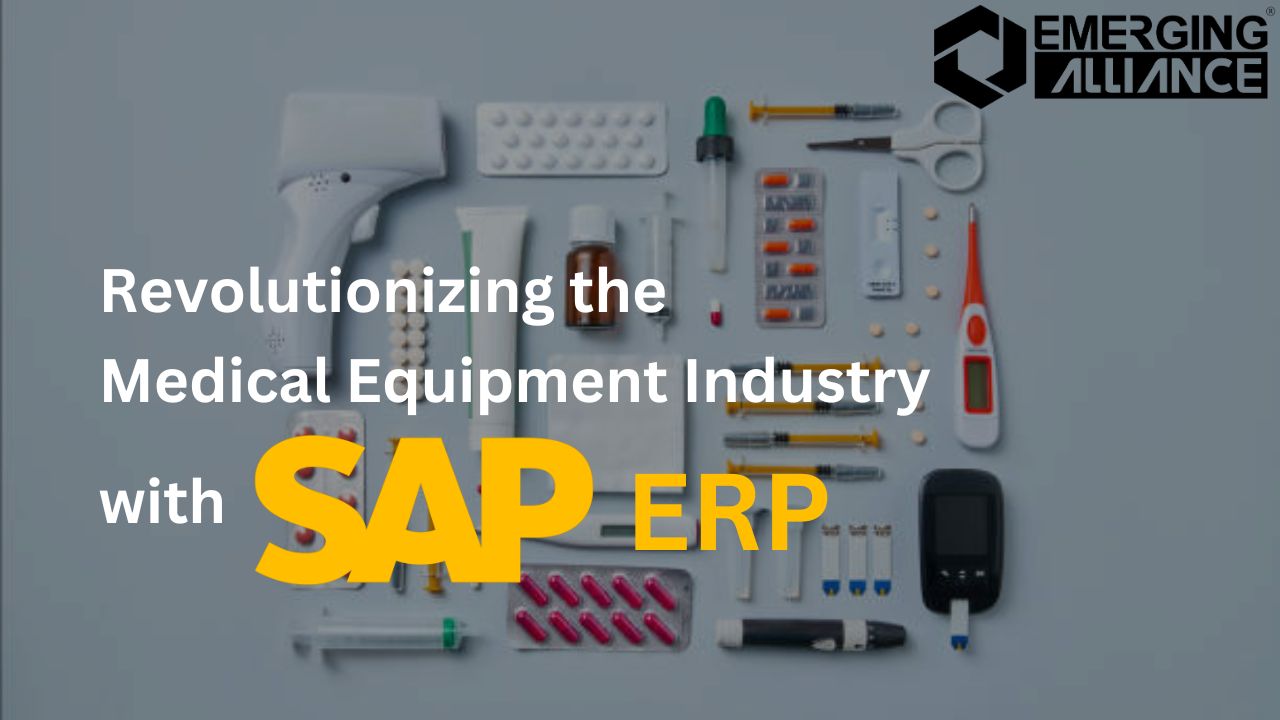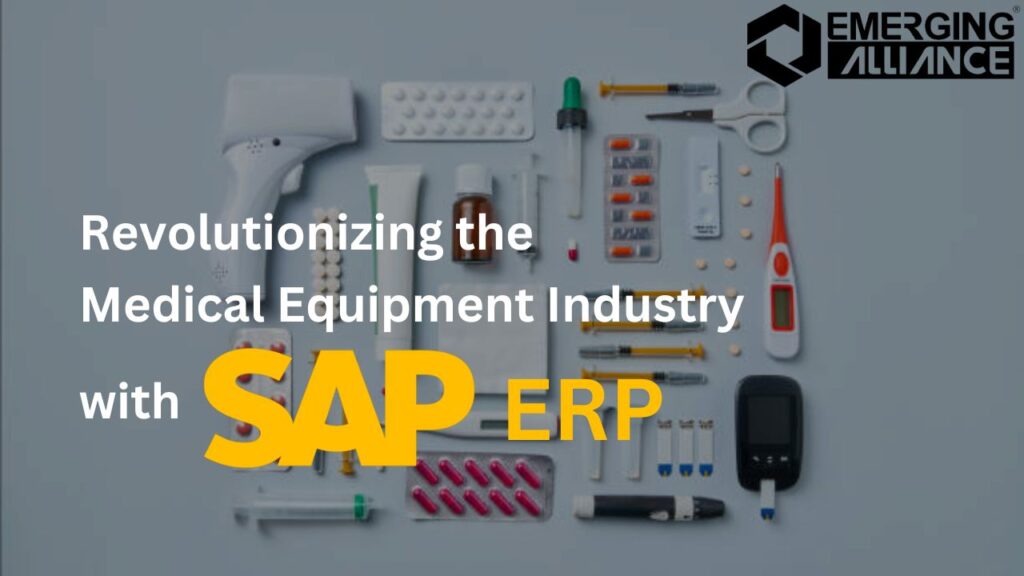
Revolutionizing the Medical Equipment Industry with SAP ERP

Optimizing the Medical Equipment Industry with SAP
In today’s fast-paced healthcare environment, the medical equipment supply chain demands efficiency, transparency, and integration. To meet these demands, many organizations are turning to SAP. This powerful system integrates various modules that streamline operations and enhance productivity. Here’s a deep dive into how SAP’s CRM, sales, purchase, inventory, banking, finance, service, document management, and dashboards can revolutionize the medical equipment supply chain.
CRM Module: Enhancing Customer Relationships with SAP ERP
The CRM module in SAP ERP is designed to manage all interactions with customers, from initial contact through post-sale service. For medical equipment suppliers, maintaining strong relationships with healthcare providers is crucial. The CRM module helps in tracking customer history, managing leads, and automating communication processes. By leveraging the CRM module, companies can ensure that their clients receive timely updates and exceptional service, leading to increased customer satisfaction and loyalty.
Sales Module: Boosting Revenue and Efficiency with SAP ERP Solutions
The sales module in SAP ERP for Medical Equipment Industry is integral for managing the entire sales process, from order creation to delivery. In the medical equipment supply chain, this module helps streamline sales orders, track sales performance, and manage customer accounts. The sales module also integrates with the inventory module to ensure that stock levels are adequate to meet demand. This seamless integration helps reduce order processing time and improves overall sales efficiency.
Purchase Module In SAP ERP for the Medical Equipment Industry:
Efficient procurement is vital for maintaining the flow of medical equipment. The purchase module in SAP automates and manages the procurement process, ensuring that purchasing decisions are timely and cost-effective. This module helps in supplier selection, purchase order creation, and invoice management. By utilizing the purchase module, medical equipment suppliers can reduce procurement costs and improve supplier relationships, which is essential for maintaining a reliable supply chain.
Inventory Module with SAP ERP Software: Optimizing Stock Levels
The inventory module in SAP plays a critical role in managing stock levels and ensuring that medical equipment is available when needed. This module provides real-time visibility into inventory levels, tracks stock movements, and helps in planning inventory replenishment. With the inventory module in SAP ERP for Medical Equipment companies can avoid stockouts and overstock situations, ensuring that they can meet the demands of healthcare providers promptly.
Banking Module: Simplifying Financial Transactions
Financial transactions are a significant part of the supply chain. The banking module in SAP helps manage these transactions efficiently. It supports various banking operations such as payments, receipts, and bank reconciliation. By integrating the banking module with other financial modules, companies can ensure accurate and timely financial transactions, reducing errors and improving financial stability.
Finance Module: Managing Financial Health
The finance module in SAP is essential for tracking and managing the financial health of a company. It encompasses functions such as general ledger, accounts payable, accounts receivable, and asset accounting. For medical equipment suppliers, the finance module helps in budgeting, financial planning, and reporting. This comprehensive financial oversight ensures that companies can make informed decisions and maintain financial health.
Service Module: Ensuring Equipment Maintenance
The service module in SAP focuses on the after-sales service and maintenance of medical equipment. It helps in managing service requests, scheduling maintenance activities, and tracking service history. By using the service module, companies can ensure that their equipment is maintained in optimal condition, reducing downtime and enhancing customer satisfaction.
Document Management: Streamlining Information Flow
Document management is a critical aspect of the supply chain. The document management system in SAP helps in organizing, storing, and retrieving documents efficiently. This system ensures that all necessary documentation, such as purchase orders, invoices, and contracts, is easily accessible. Effective document management improves compliance and reduces the risk of errors.
Dashboards: Enhancing Decision-Making
Dashboards in SAP provide a visual representation of key performance indicators (KPIs) and other critical data. These dashboards offer real-time insights into various aspects of the supply chain, such as inventory levels, sales performance, and financial status. By utilizing dashboards, decision-makers can quickly identify trends, monitor performance, and make data-driven decisions to optimize the supply chain.
Implementing SAP in the medical equipment supply chain can lead to significant improvements in efficiency, transparency, and integration. The CRM module, sales module, purchase module, inventory module, banking module, finance module, service module, document management, and dashboards work together to streamline operations and enhance productivity. By leveraging these modules, medical equipment suppliers can revolutionize their supply chain, ensuring they meet the ever-increasing demands of the healthcare industry.
To learn more about our SAP services and solutions, visit us at: https://emerging-alliance.net/
Ready to dive deeper into the topics you love? Visit our website to explore a treasure trove of valuable content, resources, and insights that will captivate your mind and fuel your curiosity!
Want to speak to an expert? Fill in the form below, and we will be in touch with you shortly!






